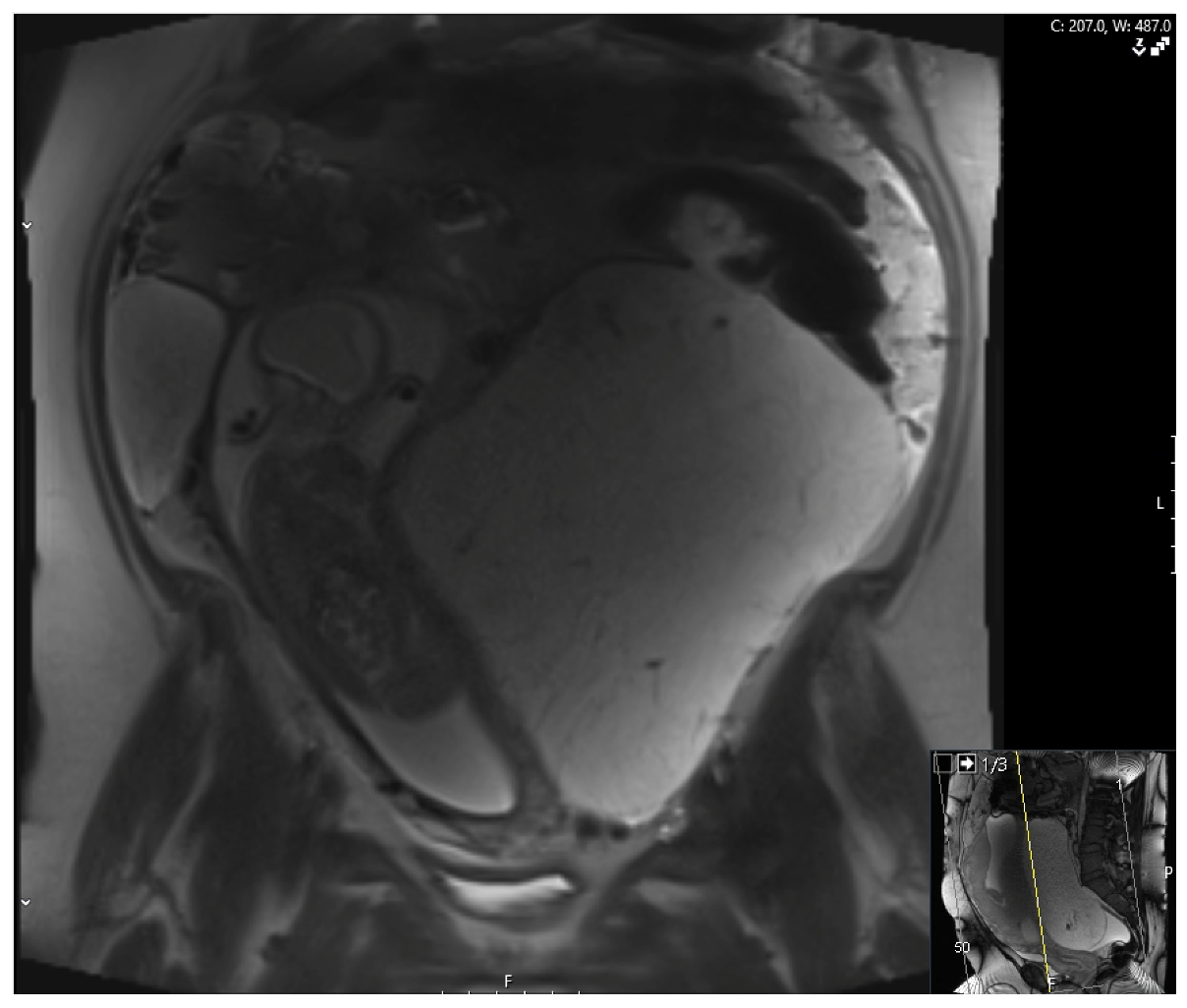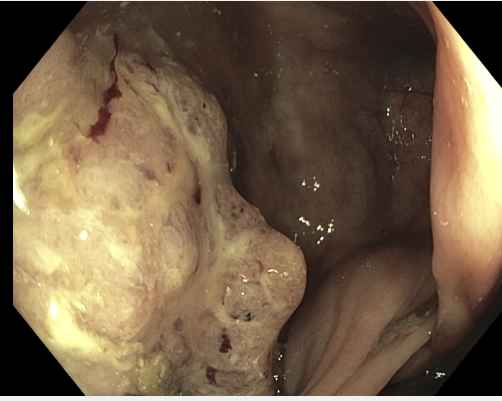Tuesday Poster Session
Category: Colon
P4612 - Catastrophe From the Colon: A Case of Metastatic Colon Cancer During Pregnancy

Shivangini Duggal, MD
Department of Internal Medicine at Paul L. Foster School of Medicine, Texas Tech University Health Sciences Center, El Paso TX, USA
El Paso, TX
Presenting Author(s)
1Department of Internal Medicine at Paul L. Foster School of Medicine, Texas Tech University Health Sciences Center, El Paso TX, USA, El Paso, TX; 2Division of Gastroenterology, Department of Internal Medicine, Texas Tech University Health Sciences Center, El Paso, TX., El Paso, TX; 3Department of Internal Medicine, Texas Health Presbyterian Hospital Dallas, Texas Health Resources, Dallas, TX, Dallas, TX; 4Texas Tech University Health Sciences Center, El Paso, TX
Introduction:
Cancer during pregnancy is rare, with an estimated incidence of 0.07% to 0.1% of all pregnancies. Among these, colorectal cancer (CRC) is exceedingly uncommon, occurring in approximately 1 in 13,000 pregnancies (0.008%). We present the case of a 38-year-old female diagnosed with colon cancer during her second trimester to highlight the challenges and considerations involved in managing colon cancer while preserving fetal viability.
Case Description/
Methods:
A 38-year-old gravida 3 para 2 woman who presented at 23 weeks and 6 days of gestation with abdominal pain. Magnetic resonance imaging of abdomen and pelvis revealed a large heterogeneous left adnexal mass with extensive peritoneal involvement, initially raising concern for a primary ovarian malignancy (Figure 1). Tumor markers including CEA, CA 19-9, and AFP were elevated, and biopsy of the peritoneal implants revealed metastatic well-differentiated mucinous adenocarcinoma. Immunohistochemical staining was positive for CDX2, CK20, and p16, and negative for PAX8, CK7, and other Müllerian markers, confirming a colorectal rather than ovarian origin. Mismatch repair protein expression was intact, suggesting microsatellite stability. Colonoscopy subsequently revealed a large, ulcerated cecal mass (Figure 2); histopathology confirmed invasive colonic adenocarcinoma with mucinous features. Given the advanced stage (stage IV) at diagnosis and ongoing pregnancy, surgical intervention was deferred. A multidisciplinary team initiated systemic chemotherapy with FOLFOXIRI, which the patient tolerated well. She completed three cycles prior to delivery and successfully delivered a healthy infant at 31 weeks of gestation.
Discussion:
This case highlights the exceptional rarity of mucinous adenocarcinoma of colorectal origin in pregnancy and emphasizes the complexity of managing CRC in this setting. It emphasizes the importance of maintaining a high index of suspicion, conducting a thorough diagnostic evaluation, utilizing a multidisciplinary approach involving oncology, gastroenterology, colorectal surgery, obstetrics and neonatology is crucial to ensuring timely intervention while balancing maternal treatment with fetal well-being.

Figure: Figure 1. MRI Abdomen demonstrates a very large (19 cmx14 cmx23cm) left adnexal mass mostly solid along with a gravid uterus with grossly normal appearance to the placenta, fetus and intrauterine contents.

Figure: Figure 2. Colonoscopy showing large, ulcerated cecal mass.
Disclosures:
Shivangini Duggal indicated no relevant financial relationships.
Jesus Guzman indicated no relevant financial relationships.
Samantha Lujan indicated no relevant financial relationships.
Adderly Toribio de Jesus indicated no relevant financial relationships.
Sherif Elhanafi indicated no relevant financial relationships.
Shivangini Duggal, MD1, Jesus Guzman, MD2, Samantha Lujan, MD3, Adderly Toribio de Jesus, MD2, Sherif E. Elhanafi, MD4. P4612 - Catastrophe From the Colon: A Case of Metastatic Colon Cancer During Pregnancy, ACG 2025 Annual Scientific Meeting Abstracts. Phoenix, AZ: American College of Gastroenterology.
